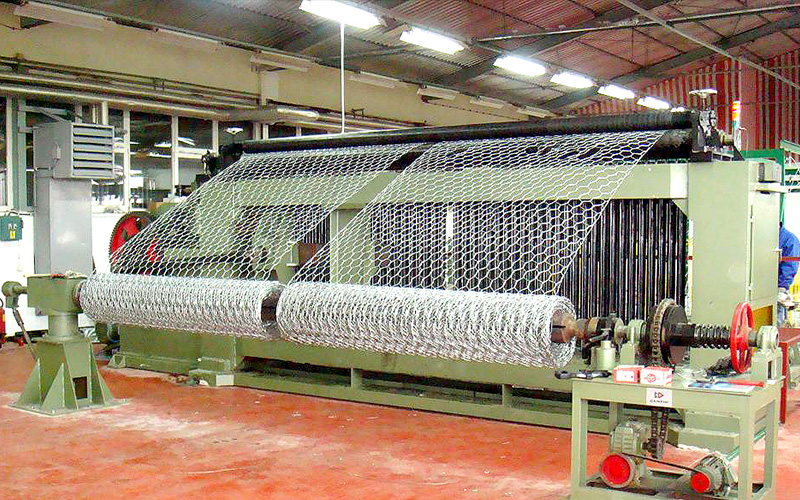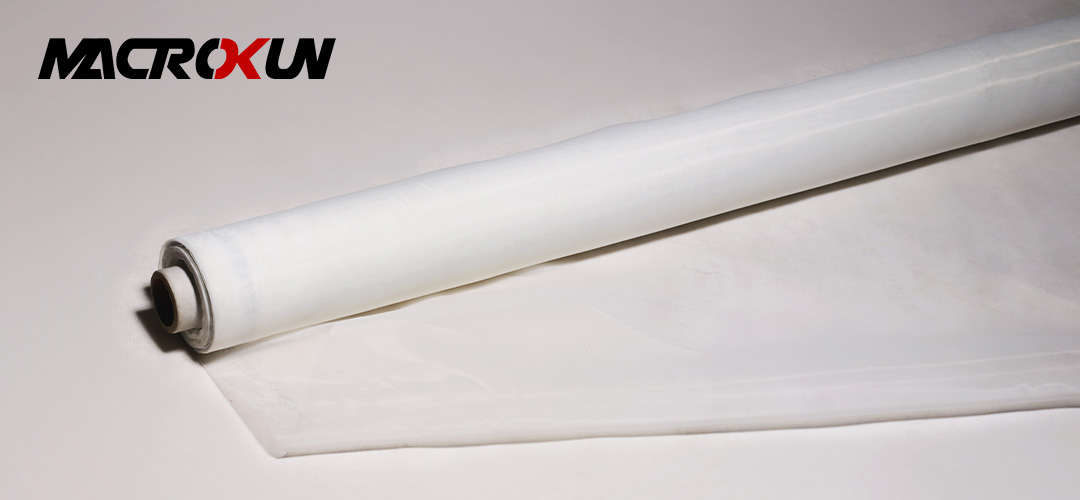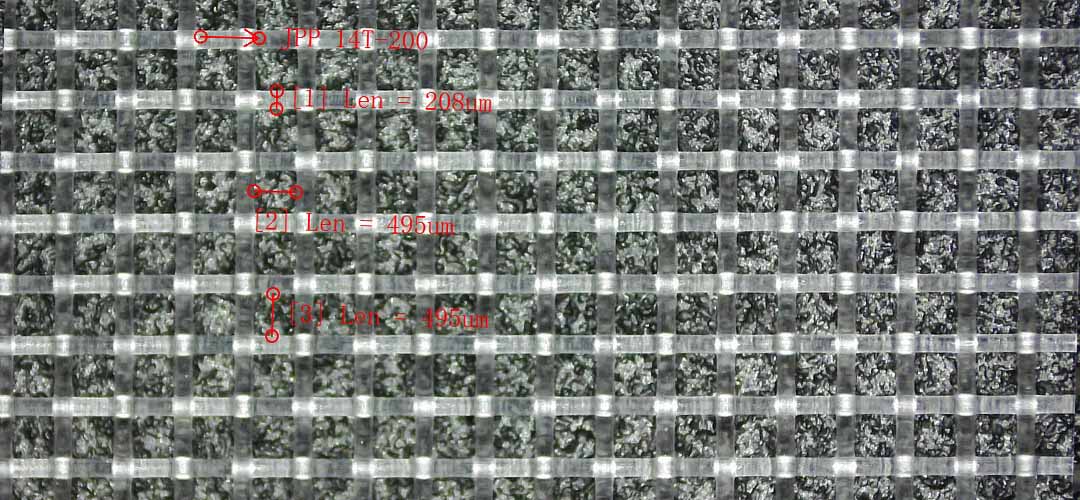When it comes to choosing the right nylon mesh sheet for your specific needs, there are a variety of factors to consider. Nylon mesh sheets offer a wide range of benefits that make them a popular choice for many applications. In this article, we will explore the benefits of nylon mesh sheets and how to choose the right one for your specific needs.
One of the key benefits of nylon mesh sheets is their durability. Nylon is a strong and resilient material that can withstand a great deal of wear and tear. This makes nylon mesh sheets ideal for applications where they will be subjected to heavy use or harsh conditions. Whether you are using nylon mesh sheets for filtration, screening, or another purpose, you can trust that they will hold up well over time.
In addition to their durability, nylon mesh sheets are also known for their flexibility. Nylon is a highly versatile material that can be easily manipulated to fit a variety of shapes and sizes. This makes nylon mesh sheets a great choice for applications where a custom fit is required. Whether you need a nylon mesh sheet that is large or small, thick or thin, you can find a product that meets your specific needs.
Another benefit of nylon mesh sheets is their resistance to chemicals and abrasion. Nylon is a non-reactive material that is resistant to many common chemicals, making it a great choice for applications where exposure to harsh substances is a concern. Additionally, nylon mesh sheets are highly resistant to abrasion, ensuring that they will maintain their integrity even in high-friction environments.
When choosing a nylon mesh sheet for your specific needs, it is important to consider the mesh size. The mesh size refers to the number of openings per inch in the mesh sheet. A smaller mesh size will result in a tighter weave, while a larger mesh size will result in a more open weave. The mesh size you choose will depend on the specific application you have in mind. For example, if you are using the nylon mesh sheet for filtration, you may want to choose a smaller mesh size to ensure that only particles of a certain size can pass through.

It is also important to consider the thickness of the nylon mesh sheet. Thicker mesh sheets are more durable and can withstand greater pressure, making them ideal for applications where strength is a priority. Thinner mesh sheets, on the other hand, are more flexible and can be easily manipulated to fit tight spaces. Consider the specific requirements of your application when choosing the thickness of your nylon mesh sheet.
In conclusion, nylon mesh sheets offer a wide range of benefits that make them a versatile and reliable choice for many applications. From their durability and flexibility to their resistance to chemicals and abrasion, nylon mesh sheets are a great option for a variety of uses. When choosing a nylon mesh sheet for your specific needs, consider factors such as mesh size and thickness to ensure that you select the right product for your application. With the right nylon mesh sheet, you can trust that your project will be completed with precision and efficiency.
When it comes to choosing the right nylon mesh sheet for your specific needs, there are several factors to consider. Nylon mesh sheets are versatile and widely used in various industries, including filtration, screen printing, and food processing. To ensure that you select the best nylon mesh sheet for your application, it is essential to take into account factors such as mesh size, mesh count, thread diameter, and material type.
One of the most critical factors to consider when choosing a nylon mesh sheet is the mesh size. Mesh size refers to the number of openings per linear inch in the mesh. The mesh size determines the size of particles that can pass through the mesh, making it crucial for applications that require precise filtration. For example, a smaller mesh size is suitable for filtering fine particles, while a larger mesh size is ideal for applications that require larger particles to pass through.
In addition to mesh size, mesh count is another essential factor to consider when selecting a nylon mesh sheet. Mesh count refers to the number of threads per inch in the mesh. A higher mesh count indicates a finer mesh with smaller openings, while a lower mesh count indicates a coarser mesh with larger openings. The mesh count plays a significant role in determining the mesh‘s strength, durability, and filtration efficiency.
Thread diameter is another critical factor to consider when choosing a nylon mesh sheet. Thread diameter refers to the thickness of the threads used to weave the mesh. Thicker threads are more robust and durable, making them suitable for applications that require high tensile strength. On the other hand, thinner threads are more flexible and provide better ink flow in screen printing applications. The thread diameter should be selected based on the specific requirements of your application to ensure optimal performance.

Material type is also an essential factor to consider when choosing a nylon mesh sheet. Nylon mesh sheets are available in various materials, including nylon 6 and nylon 6/6. Nylon 6 is known for its excellent chemical resistance and abrasion resistance, making it suitable for applications that require exposure to harsh chemicals or abrasive materials. Nylon 6/6, on the other hand, offers higher tensile strength and heat resistance, making it ideal for applications that require high mechanical strength and temperature resistance.
When selecting a nylon mesh sheet, it is essential to consider the specific requirements of your application and choose a mesh that meets those requirements. Whether you need a fine mesh for precise filtration or a coarse mesh for high flow rates, there is a nylon mesh sheet available to suit your needs. By considering factors such as mesh size, mesh count, thread diameter, and material type, you can ensure that you select the right nylon mesh sheet for your specific application.
In conclusion, choosing the right nylon mesh sheet for your specific needs requires careful consideration of factors such as mesh size, mesh count, thread diameter, and material type. By selecting a mesh that meets the requirements of your application, you can ensure optimal performance and efficiency. Whether you need a nylon mesh sheet for filtration, screen printing, or food processing, there is a wide range of options available to suit your needs. Take the time to evaluate your requirements and choose a nylon mesh sheet that will deliver the best results for your application.
When it comes to choosing the right nylon mesh sheet for your specific needs, it’s important to understand the different types available on the market. Nylon mesh sheets are versatile and widely used in various industries, including filtration, screen printing, and food processing. Each type of nylon mesh sheet has its own unique characteristics and properties that make it suitable for specific applications.
One of the most common types of nylon mesh sheets is monofilament nylon. Monofilament nylon mesh sheets are made from a single strand of nylon fiber, which gives them a smooth surface and uniform opening size. These sheets are ideal for applications that require high precision and fine filtration, such as screen printing and medical filtration.
Another type of nylon mesh sheet is multifilament nylon. Multifilament nylon mesh sheets are made from multiple strands of nylon fiber twisted together, which gives them a more rugged and durable construction. These sheets are commonly used in applications that require high strength and durability, such as industrial filtration and automotive airbags.
In addition to monofilament and multifilament nylon mesh sheets, there are also specialty nylon mesh sheets available on the market. Specialty nylon mesh sheets are designed for specific applications that require unique properties, such as chemical resistance, heat resistance, or anti-static properties. These sheets are often custom-made to meet the specific requirements of the application.
When choosing the right nylon mesh sheet for your specific needs, it’s important to consider the mesh size, opening size, and thread diameter. The mesh size refers to the number of openings per inch in the mesh sheet, which determines the level of filtration or screening. The opening size refers to the size of the individual openings in the mesh sheet, which determines the particle size that can pass through. The thread diameter refers to the thickness of the nylon fiber used to make the mesh sheet, which determines the strength and durability of the sheet.
It’s also important to consider the weave pattern of the nylon mesh sheet. The most common weave patterns for nylon mesh sheets are plain weave, twill weave, and Dutch weave. Each weave pattern has its own unique characteristics and properties that make it suitable for specific applications. For example, plain weave nylon mesh sheets have a simple over-under pattern that provides uniform filtration, while twill weave nylon mesh sheets have a diagonal pattern that provides increased strength and durability.
In conclusion, choosing the right nylon mesh sheet for your specific needs requires careful consideration of the type of nylon mesh sheet, mesh size, opening size, thread diameter, and weave pattern. By understanding the different types of nylon mesh sheets available on the market and their unique properties, you can select the best sheet for your application. Whether you need a monofilament nylon mesh sheet for fine filtration or a multifilament nylon mesh sheet for industrial filtration, there is a nylon mesh sheet available to meet your specific needs.
When it comes to choosing the right nylon mesh sheet for your specific needs, there are a few key factors to consider. Nylon mesh sheets are commonly used in a variety of industries, including filtration, screen printing, and food processing. The type of nylon mesh sheet you choose will depend on the specific requirements of your application.
One of the first things to consider when selecting a nylon mesh sheet is the mesh size. Mesh size refers to the number of openings per inch in the mesh. A higher mesh size indicates a finer mesh, while a lower mesh size indicates a coarser mesh. The mesh size you choose will depend on the size of the particles you need to filter or the level of detail you need to achieve in screen printing.
| Type | Mesh Count (/cm) |
Mesh Count (/inch) |
Thread Dia (um) |
Mesh Opening (um) |
Thickness (um) |
Gross Weight (g/m2) |
| NL4/1950 | 4 | 10 | 550 | 1950 | 1100 | 307 |
| NL5/1500 | 5 | 13 | 500 | 1500 | 1000 | 318 |
| NL6/1267 | 6 | 15 | 400 | 1267 | 800 | 244 |
| NL7/1079 | 7 | 18 | 350 | 1079 | 700 | 218 |
| NL8/900 | 8 | 20 | 350 | 900 | 700 | 249 |
| NL9/861 | 9 | 23 | 250 | 861 | 500 | 143 |
| NL9/811 | 9 | 23 | 300 | 811 | 600 | 206 |
| NL10/750 | 10 | 25 | 250 | 750 | 500 | 159 |
| NL10/700 | 10 | 25 | 300 | 700 | 600 | 229 |
| NL12/583 | 12 | 30 | 250 | 583 | 500 | 191 |
| NL12/533 | 12 | 30 | 300 | 533 | 600 | 274 |
| NL14/514 | 14 | 36 | 200 | 514 | 340 | 142 |
| NL16/425 | 16 | 40 | 200 | 425 | 340 | 160 |
| NL20/350 | 20 | 50 | 150 | 350 | 255 | 113 |
| NL20/300 | 20 | 50 | 200 | 300 | 340 | 200 |
| NL24/267 | 24 | 60 | 150 | 267 | 255 | 135 |
| NL28/237 | 28 | 70 | 120 | 237 | 204 | 101 |
| NL30/213 | 30 | 76 | 120 | 213 | 204 | 110 |
| NL32/213 | 32 | 80 | 100 | 213 | 170 | 80 |
| NL36/178 | 36 | 90 | 100 | 178 | 170 | 90 |
| NL40/150 | 40 | 100 | 100 | 150 | 170 | 100 |
| NL43/153 | 43 | 110 | 80 | 153 | 136 | 70 |
| NL48/128 | 48 | 120 | 80 | 128 | 136 | 77 |
| NL56/119 | 56 | 140 | 60 | 119 | 102 | 50 |
| NL64/96 | 64 | 160 | 60 | 96 | 102 | 58 |
| NL72/89 | 72 | 180 | 50 | 89 | 85 | 45 |
| NL80/75 | 80 | 200 | 50 | 75 | 85 | 50 |
| NL100/57 | 100 | 250 | 43 | 57 | 73 | 46 |
| NL110/48 | 110 | 280 | 43 | 48 | 73 | 52 |
| NL120/48 | 120 | 300 | 35 | 48 | 60 | 37 |
| NL120/40 | 120 | 300 | 43 | 40 | 73 | 55 |
| NL130/42 | 130 | 330 | 35 | 42 | 60 | 40 |
| NL130/34 | 130 | 330 | 43 | 34 | 73 | 61 |
| NL140/36 | 140 | 350 | 35 | 36 | 60 | 43 |
| NL157/25 | 157 | 400 | 43 | 25 | 73 | 74 |
| NL180/20 | 180 | 450 | 39 | 20 | 66 | 68 |
| NL200/15 | 200 | 500 | 39 | 15 | 66 | 76 |
| NL220/10 | 220 | 550 | 39 | 10 | 66 | 84 |
| NL240/5 | 240 | 600 | 39 | 5 | 66 | 91 |
Another important factor to consider is the mesh count. Mesh count refers to the number of threads per inch in the mesh. A higher mesh count indicates a denser mesh, while a lower mesh count indicates a looser mesh. The mesh count you choose will depend on the level of durability and flexibility you need in your nylon mesh sheet.
It is also important to consider the material of the nylon mesh sheet. Nylon mesh sheets are typically made from either monofilament or multifilament nylon. Monofilament nylon is made from a single continuous thread, while multifilament nylon is made from multiple threads twisted together. Monofilament nylon is known for its durability and resistance to abrasion, making it ideal for applications that require frequent cleaning or handling.
Once you have selected the right nylon mesh sheet for your specific needs, it is important to properly care for it to ensure its longevity and effectiveness. Proper care and maintenance of nylon mesh sheets can help prevent damage and extend their lifespan.
One of the most important things to do when caring for nylon mesh sheets is to clean them regularly. Nylon mesh sheets can become clogged with dirt, debris, and other contaminants over time, which can affect their performance. To clean nylon mesh sheets, simply rinse them with warm water and a mild detergent, then allow them to air dry.
It is also important to store nylon mesh sheets properly when not in use. Nylon mesh sheets should be stored in a cool, dry place away from direct sunlight and extreme temperatures. Storing nylon mesh sheets in a clean, dry environment can help prevent damage and prolong their lifespan.

In addition to regular cleaning and proper storage, it is important to inspect nylon mesh sheets regularly for signs of wear and tear. If you notice any holes, tears, or other damage in your nylon mesh sheet, it is important to repair or replace it as soon as possible to prevent further damage.
By choosing the right nylon mesh sheet for your specific needs and properly caring for it, you can ensure that it performs effectively and lasts for a long time. Proper care and maintenance of nylon mesh sheets are essential for maximizing their performance and longevity.
Pre: How Nylon Wire Mesh is Revolutionizing the Filtration Industry
Next: How to Choose the Best Nylon Mesh When Shopping Online

MACROKUN has established long-term and stable cooperative relations with many transportation companies such as China Post, DHL, FEDEX, USPS, UPS, etc. Of course, MACROKUN can also provide air and sea transportation. The powerful logistics system enables all MACROKUN'S Printing Mesh, Filter Mesh and Filter Bags and so on to be easily and efficiently transported to any place. For quotes and inquiries, please email our sales team.





